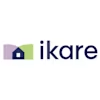
Treating Dementia Singapore
Starting at
$
100
About this service
Summary
What's included
Treating Dementia Singapore
Treating Dementia Singapore: Dementia treatment in Singapore combines comprehensive medical interventions with personalized care plans to address cognitive decline and improve quality of life. Our multidisciplinary team of neurologists, geriatric specialists, and trained caregivers works closely with patients and families to implement evidence-based therapies, including medication management, cognitive stimulation exercises, and lifestyle modifications. We also offer supportive services such as nutritional counseling, physiotherapy, and specialized day-care programs designed to maintain independence and foster social engagement. By tailoring each treatment plan to the individual’s needs and stage of dementia, we strive to maximize functional abilities and emotional well-being. For expert dementia treatment guidance, contact us at +65 6568 3930 today.
Duration
1 week
Skills and tools
Personal Trainer


Medium

YouTube
Industries
